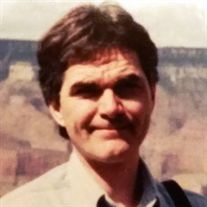 Rodney Woidtke On June 26, 1988, the badly decomposed body of Audrey Cardenas was found behind the Belleville Township High School East athletic field in Belleville, Illinois. As evidence technicians processed the scene, Rodney Woidtke, a 25-year-old mentally ill and extremely homophobic drifter, wandered onto the field.
Illinois State Police investigators arrested Woidtke and questioned him for three days. Woidtke at first denied the crime, but when an interrogator accused him of being a homosexual, he made the first of three confessions, prefacing it: “If I have to die, I want to die gently and painlessly. If I live, others will die. I don’t want to be a homo. I don’t want to be a woman, and I don’t want to be tortured unnecessarily by less than human beings.” All of the confessions were factually inconsistent with the evidence in the case.
On the basis of those confessions, state's attorney John Baricevic charged Woidtke with first-degree murder. Brian Trentman, a lawyer with one year's experience, was appointed to defend him. Woidtke did not know that his lawyer also represented Dale Anderson, another suspect in the same crime.
In 1989, Trentman waived Woidtke's right to a jury trial and tried his case before Judge Richard Aguirre. Aguirre took only a few minutes to arrive at a guilty verdict and sentenced Woidtke to 45 years in prison. The conviction was affirmed in 1992.
Tthe case then languished for years because Woidtke’s attorney did nothing to obtain a hearing despite powerful new evidence of his innocence. Specifically, in 1990 Dale Anderson was convicted of killing another woman and her son in 1989, one day before Woidtke was sentenced for the Cardenas murder. Before he killed her, Anderson forced that second victim to write a statement saying that the same people who killed her had earlier killed Audrey Cardenas.
Eventually, in 2000, the Illinois 5th District Court of Appeals overturned Woidtke's conviction and ordered a new trial. The appellate court held that Trentman’s representation of Anderson was a fundamental conflict of interest that deprived Woidteke of a fair trial, and it took note of the new evidence that Anderson had committed the crime for which Woidtke was convicted. The appellate court criticized Aguirre's decision not to examine the new evidence of Woidtke’s innocence. The Court of Appeals also noted that a clinical psychologist who testified for the prosecution had said he believed Woidtke was a paranoid schizophrenic and homophobe who believed he had to confess to prove he was not a homosexual.
In 2001, a jury acquitted Woidtke. The victim’s mother, Billie Fowler, was highly critical of the prosecution for not dismissing the charges without a retrial. The retrial, she said, served no purpose other than to deceive the public into believing that police and prosecutors had not made a mistake. “But, guess what,” she said, “they did make a mistake — and they got caught.”
Woidtke filed a federal civil rights lawsuit against St. Clair County, but it was dismissed.
Woidtke died in 2014 in California.
— Rob Warden
|